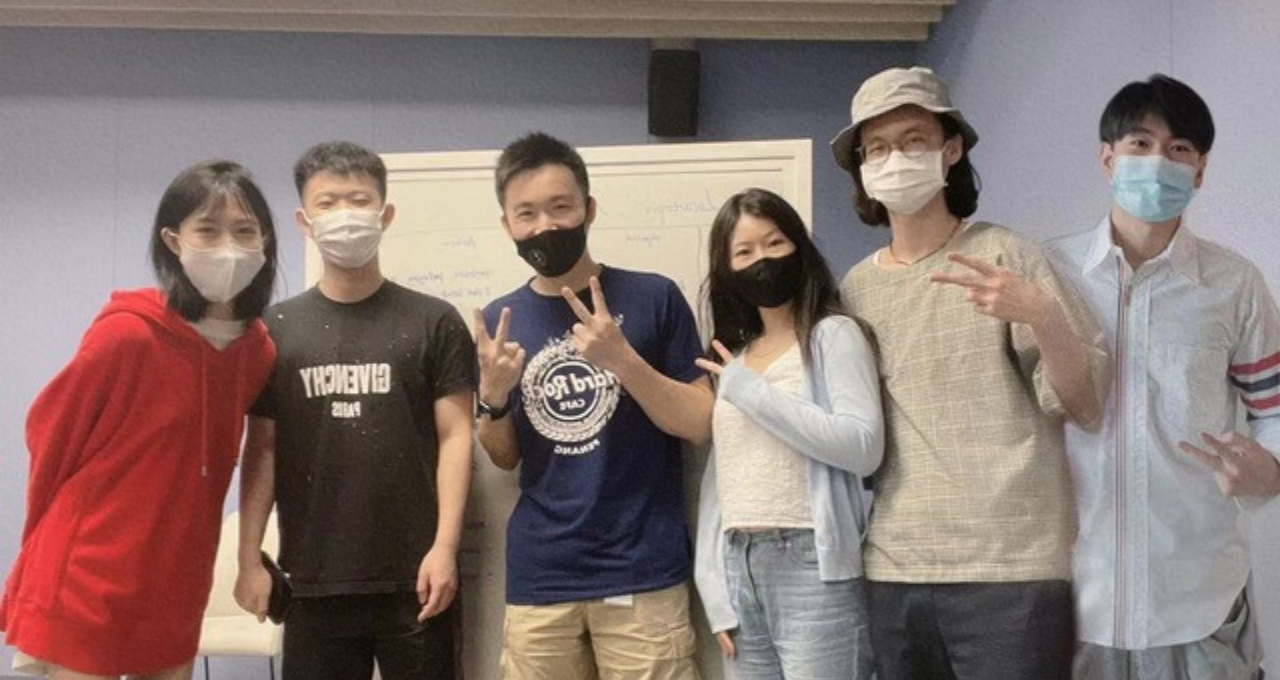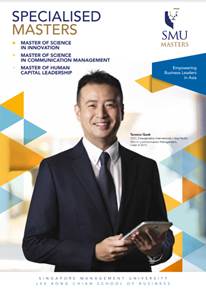
While travel restrictions are still in place and international programmes on hold, students can still gain cross-cultural exposure — all within their coursework. SMU's diverse student body and faculty offer infinite opportunities to learn from one another through the University's interactive pedagogy and hands-on programmes.
For example, a group of SMU Master of Science in Innovation (MI) students are working on a capstone project, strategizing campaigns for Singaporean brands looking to expand into overseas Chinese markets. Comprising of Chinese and Taiwanese students, the group combines its unique market knowledge and language capabilities with real-world tools in innovation and management, to commercialise and market the offerings of local companies to China and beyond.
“We saw a common pain point amongst the brands, which was that the China market is very complex and risky. Many local brands struggle to find the right mode of entry into China as they do not know where to begin,” explains Cai Yiqing, a full-time MI student and business transformation veteran with over 13 years of experience in finance, supply chain, mergers and divestitures, and B2B deal structuring.
“We hence pivoted our capstone project to providing market entry service to beauty brands, and subsequently other small and medium companies. This was the beginning of Lokotopia, with a mission to help brands grow locally in China, where they could build trust with the Chinese consumers in the same way they did back in their home countries.”
Comprising fellow MI students Yan Jiameng, Lee Kuan-fu and Wei Qiluo, Lokotopia was selected for the BIG Incubator programme, and currently working with several Singapore-based clients to translate their brand strategies for a wider audience beyond our shores. The team leverages their unique knowledge of customer behaviour in various Chinese markets into tailored campaigns for the brands’ target audience.
For example, they developed a brand outreach initiative for a Singapore beauty company by seeding its products to Chinese expatriate influencers based here. And while social media platforms like Facebook and Instagram are popular among Singaporeans, Chinese users flock to WeChat and Xiaohongshu, also known as RED — a social media and e-commerce platform, as Facebook and Instagram are banned in China. As such, social media content has to be adapted to suit these channels.
“The biggest challenge is how to productise our service. To effectively offer our service of market testing and customisation, we will need to reach out to Chinese consumers who are interested in trying out new brands,” notes Yiqing.
“While we have our social connections, it’s not sustainable nor scalable to rely purely on our personal networks. And if we start doing social media marketing, we’ll end up in the same place as the other marketing agencies: where the cost is high, and results are questionable with a limited budget. Our current thinking is to start building our own follower base and ‘lead user community’ of pioneering, advanced users, and we are conducting market research to understand how we could do that most efficiently.”
However, the group maintains that being uniquely positioned in the cosmopolitan hub that is Singapore gives rise to business solutions and inspirations — perfect for percolating their inter-border business idea.
“In our opinion, Singapore is in a good place to become the gateway for many Chinese to learn about the world, and for the western world to learn about Asia and China,” adds Yiqing.
“We believe there is a great opportunity for businesses by facilitating exchanges of information, ideas, products and channels, with Singapore as a hub.”
Specifically, the team benefitted from the diverse international community at SMU, which creates a learning experience that transcends borders and bridges global views. They share that their class was diverse not just in terms of nationality, but also professional experience: From an Indonesian-born Broadway theatre director who studied in the UK and worked in the US, to a classmate from Colombia who worked at a fintech start-up.
“The courses themselves provide great global perspectives as well,” adds Yiqing.
“For every module, we examine case studies globally, with examples from not just US, which is more commonly shared, but also Chinese companies, Indian companies and even African companies. The most interesting part is that many of our professors not only taught us about these case studies, but shared their personal experiences of working with those companies. In some cases, they even invited guest speakers to talk to us directly, including entrepreneurs and venture capitalists. When the “main character” of the case study actually appears in person to talk about his/her journey, you get an entirely new perspective.”
In some of the modules like Creativity, Service Innovation, Marketing, Business Growth, Strategy and Negotiation, the MI students had the opportunity to discuss cultural differences and how they impact our mindset and actions. During a negotiation class, the professor had asked the class to share a few tips on how to interact with the culture they come from or which they are familiar — an exercise that yielded insights on cultural nuances in the US, Indonesia, France, Latin America, Japan, Hong Kong, UK, India, China, Thailand, Switzerland, Finland, New Zealand, South Africa, Taiwan and Dubai.
“That one hour felt like a virtual tour around the world. Everyone was just amazed by the breadth of cultural exposure within the classroom,” recalls Yiqing.
And while global exposure programmes such as student exchanges may be suspended due to the pandemic, the MI students observe that their postgraduate experience is ripe with opportunities to nurture a global mindset. And living in a global melting pot such as Singapore — the city-state is home to over 7,000 multinational companies — also translates into direct access to international perspectives.
“In every major metropolitan city, there are so many expatriates working and living there. They could be your best guide to learning about their home countries,” says Yiqing.
“School is the best place to make those connections. The many networking opportunities, like group projects, industry events and start-up incubation programmes, allow you to build friendship with people from many different backgrounds, and even connect with friends of friends. All you need to do is safely step out of your comfort zone. You may find up to 80 per cent of the international exchange you want right here in Singapore, if you consciously seek it out.”
Speak to our Admissions Advisors
Lee Kong Chian School of Business
Postgraduate Admissions
Singapore Management University
Level 4, Postgraduate Programmes Office
50 Stamford Road, Singapore 178899
Tel: +65 6828 0882
